Energy Storage
Schaltbau North America
Wind
Ole Binderup
Solar
Sun Ballast
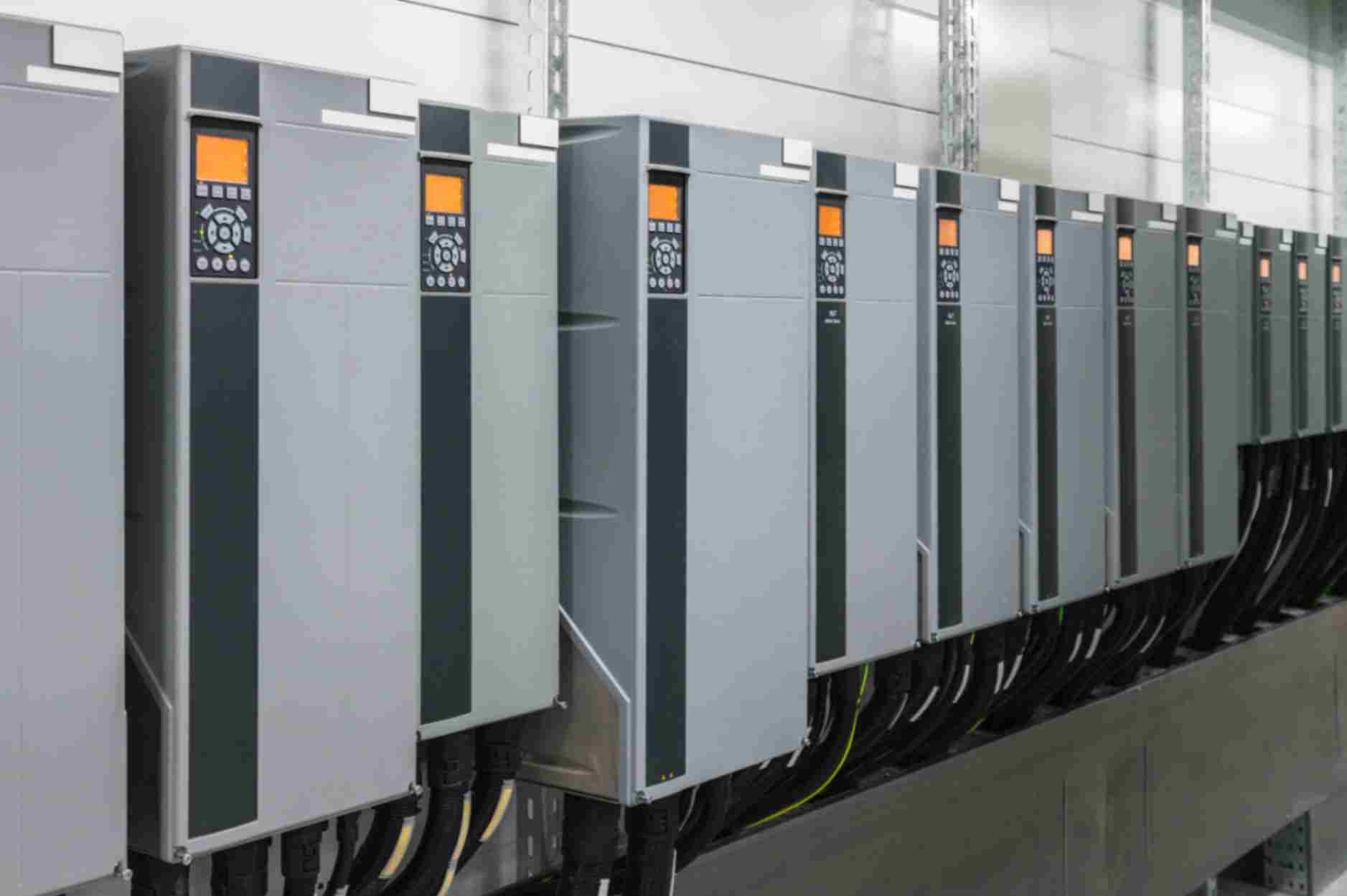
Technology group Wärtsilä will deliver a large energy storage system in Australia, which will be Wärtsilä’s second DC-coupled project in the country. Significantly, this will be the largest DC-coupled hybrid battery system in the National Electricity Market (NEM), reflecting a growing trend toward hybridisation of storage assets with co-located renewable generation. Once operational, the battery energy storage system will have the capacity to power up to 120,000 homes and businesses, providing a significant boost to the country’s renewable energy ambitions. The order will be booked by Wärtsilä in Q4 2025.
DC-coupled projects represent a shift in the future of renewable energy integration. By directly coupling solar generation with battery storage through a DC/DC converter, the architecture minimises energy losses to capture solar power that would otherwise be curtailed, significantly improving project economics, system efficiency, and overall grid stability. This helps to stabilise the grid amid growing solar and wind curtailment.
The project has secured approval for its Generator Performance Standards (GPS), marking a critical milestone in integrating renewable generation and storage at scale. Securing GPS approval was crucial to ensure the successful design and approval of the innovative DC-coupled hybrid system, with Wärtsilä’s optimisation technology playing a central role. The project is supported by a 20-year service agreement.
“This project is significantly larger than our earlier DC-coupled project, underscoring the need for this type of technology in expanding at scale,” said David Hebert, Vice President of Global Sales Management, Wärtsilä Energy Storage. “It’s particularly exciting to work on the largest DC-coupled project in the country; DC-coupled technology is a breakthrough for hybrid renewable plants and a critical step towards establishing a financially viable renewable energy future. The project is a prime example of how hybrid renewable energy and storage solutions can help stabilise Australia’s grid while advancing decarbonisation goals.”
Wärtsilä’s intelligent controls and optimisation software, GEMS, will sit at the forefront of the project, managing the integration of both the energy storage system and solar assets with the grid’s connection requirements. The GEMS Hybrid Power Plant Controller (PPC) ensures coordination between the solar farm and storage system. It conducts intelligent power control and optimised energy management operations for the entire plant to meet grid requirements and response times, charge and discharge the battery appropriately, and maximise project value.
Wärtsilä is a Tier-1 leading integrator in Australia. This project will be Wärtsilä’s ninth BESS site in the country, expanding the company’s local footprint to 1.5GW / 5.5GWh of capacity. The project is expected to be operational in 2028 and will contribute directly to Australia’s net-zero by 2045 target.
Wärtsilä | https://www.wartsila.com/

Avangrid, Inc., a leading energy company and member of the Iberdrola Group, announced that nearly 700 Avangrid employees volunteered a total of 5,500 hours in celebration of Iberdrola’s International Volunteer Week. From October 11 to October 19, volunteers supported a total of 18 different nonprofit organizations across Connecticut, Maine, New York, and Oregon.

“International Volunteer Week is a powerful reminder of the values that define us,” said Avangrid CEO Jose Antonio Miranda. “Our employees bring energy and heart to everything they do—not just in their work, but in their communities. I’m proud to see teams from across the country come together to serve, support, and make a lasting impact where it matters most.”
In New York, teams supported the Corning Rotary Club Octoberfest and the Walk to End Alzheimer’s in Elmira, filled backpacks for students in Lancaster, donated blood in Ithaca, and helped complete a Habitat for Humanity build in Auburn. In Connecticut, volunteers distributed food with Connecticut FoodShare and supported the Autumn Festival in Ansonia. Maine volunteers backed three major events on October 19 alone, including the Save Your Breath 5K in Augusta and the Making Strides Against Breast Cancer Walk in Cape Elizabeth. In Oregon, teams helped maintain trails at Hoyt Arboretum, supported the Oregon Food Bank, and assisted Chelsea’s Closet for hospitalized children. These efforts reflect a shared dedication to service, inclusion, and strengthening the communities where Avangrid employees live and work.
“Volunteer Week showcases the incredible spirit of service that lives within our Avangrid team,” said Pablo Colón, Director of Corporate Citizenship and Executive Director of the Avangrid Foundation. “Whether our volunteers are distributing food, supporting local festivals, or walking for a cause, their actions build stronger, more connected communities. We’re proud to support and amplify their impact through the Avangrid Foundation.”
Avangrid | http://www.avangrid.com
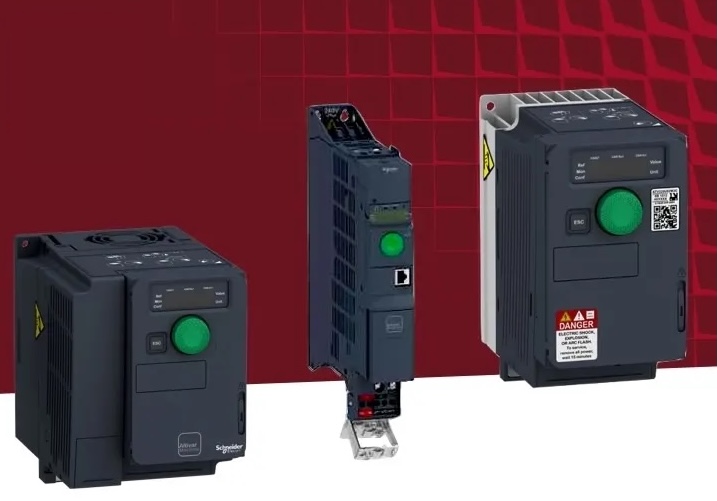
RS, a high-service global product and service solutions provider for industrial customers, offers Schneider Electric's Altivar Solar ATV320 variable speed drives (VSDs) for solar powered pumping applications.
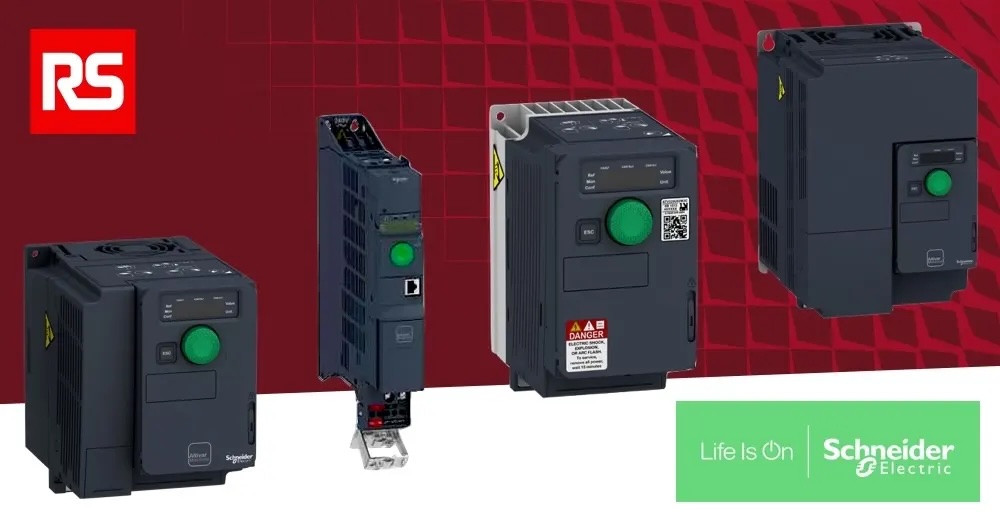
VSDs — also widely known as variable frequency drives (VFDs) and adjustable frequency drives (AFDs) — are power conversion devices designed to control the speed, deceleration, and torque of electric motors without the aid of mechanical components, like gearboxes. VSDs enable more flexible, precise, and repeatable motor control and require significantly less maintenance than mechanical motor control solutions. They can also offer remote monitoring capabilities and deliver substantial energy savings, especially when they're used to regulate the speed of centrifugal pumps and fans. For example, if you use a control valve to reduce a pump's flow from 100% to 90%, you might achieve a negligible 1–2% energy savings. But if you use a VSD to achieve the same flow reduction by reducing the pump's speed, you'll achieve energy savings of around 27% and eliminate the need for the control valve, which also eliminates extra cost, system wear and tear, and maintenance.
Standard VSDs are designed for use with stable, regulated AC voltage supplies. So, in order to use them with solar arrays — which generate variable DC voltage depending on the season, time of day, and weather — you need to pair them with a battery storage solution and an AC inverter, which adds equipment, engineering, and maintenance costs, negating many of the advantages of using VSDs instead of mechanical motor control solutions.
Schneider Electric solved this challenge with the introduction of its Altivar Solar ATV320 VSDs — purpose-built solar drives engineered to accept highly varied DC supply voltages and adapt drive and motor performance to that variable power without the added equipment, engineering, and maintenance costs required to use standard VSDs with solar arrays. This makes them especially well-suited for pumping applications in remote settings, as they eliminate the need for an accessible electrical power supply and minimize maintenance. And while it's true that they can't deliver the constant, full-speed performance of standard drives with stable, regulated AC power supplies, they do consistently operate at the maximum speed possible with the available power.
As part of Schneider Electric's Altivar VSD product line, Altivar Solar ATV320 VSDs are backed by decades of VSD R&D experience — spanning small, quarter-horsepower motor controllers to medium-voltage drives designed for both general-purpose and application-specific use — and field-proven performance in applications extending throughout virtually every industrial segment, including water and wastewater, oil and gas, HVAC, agriculture, food and beverage, pharmaceutical manufacturing, and logistics.
Altivar VSDs are widely renowned for their durability, reliability, and efficiency and the sophistication of their software and application control functions, and Altivar Solar ATV320 VSDs — which are also backed by nearly 10 years of field-proven performance in remote, solar-powered pumping applications — are no exception.
Schneider Electric's Altivar Solar ATV320 VSDs for solar powered pumps are compatible with a wide range of pumps and solar arrays and increase the reliability, sustainability, energy efficiency, and service life of these systems compared to standard VSDs and mechanical motor control solutions while requiring less maintenance. They adjust pump flow in accordance with available energy, have a wide DC voltage range to maximize energy harvesting and power availability, and can connect to both the grid and a solar array to optimize availability in pumping applications that require more consistent operation. They have self-preserving dry-run and anti-jam functions, diagnostic capabilities, and a suite of safety features to reduce operating risks, protect assets, optimize performance, minimize maintenance, and keep pumps running. They feature integrated support for Modbus RJ45 and CANopen RJ45 communication protocols and optional support for Ethernet IP and Modbus TCP protocols, which enable remote control by I/O. These smart VSDs also support intuitive programming and commissioning with ATVLogic — integrated software that allows users to program complex automation tasks using function block diagrams — and feature a maximum power point tracking (MPPT) algorithm that efficiently and accurately detects solar panel parameters to further ease configuration and commissioning.
Altivar Solar ATV320 VSDs are available in:
They're also rated for operating temperatures extending from -15°C to +50°C without derating or +60°C with derating and IP20 environmental protection since they're designed for use in control cabinets.
ATV320 VSDs are compatible with synchronous, asynchronous, and permanent magnet (PM) motors, utilize open-loop controls to adjust motor torque and speed control, and support six motor control methods:
Ideal applications for Altivar Solar ATV320 VSDs — which are also designated as RS Better World products proven to support more sustainable industrial operations — include sprinklers, micro, drip, and flood irrigation systems, submersible, surface-mounted, and water storage tank pumps, off-grid, solar powered water systems, and water treatment systems.
For assistance identifying, procuring, deploying, and maintaining Schneider Electric's Altivar Solar ATV320 VSDs, please contact your local RS representative at 1.866.433.5722 or reach out to the RS technical support team.
Schneider Electric | www.se.com
RS Group | https://www.rsgroup.com/
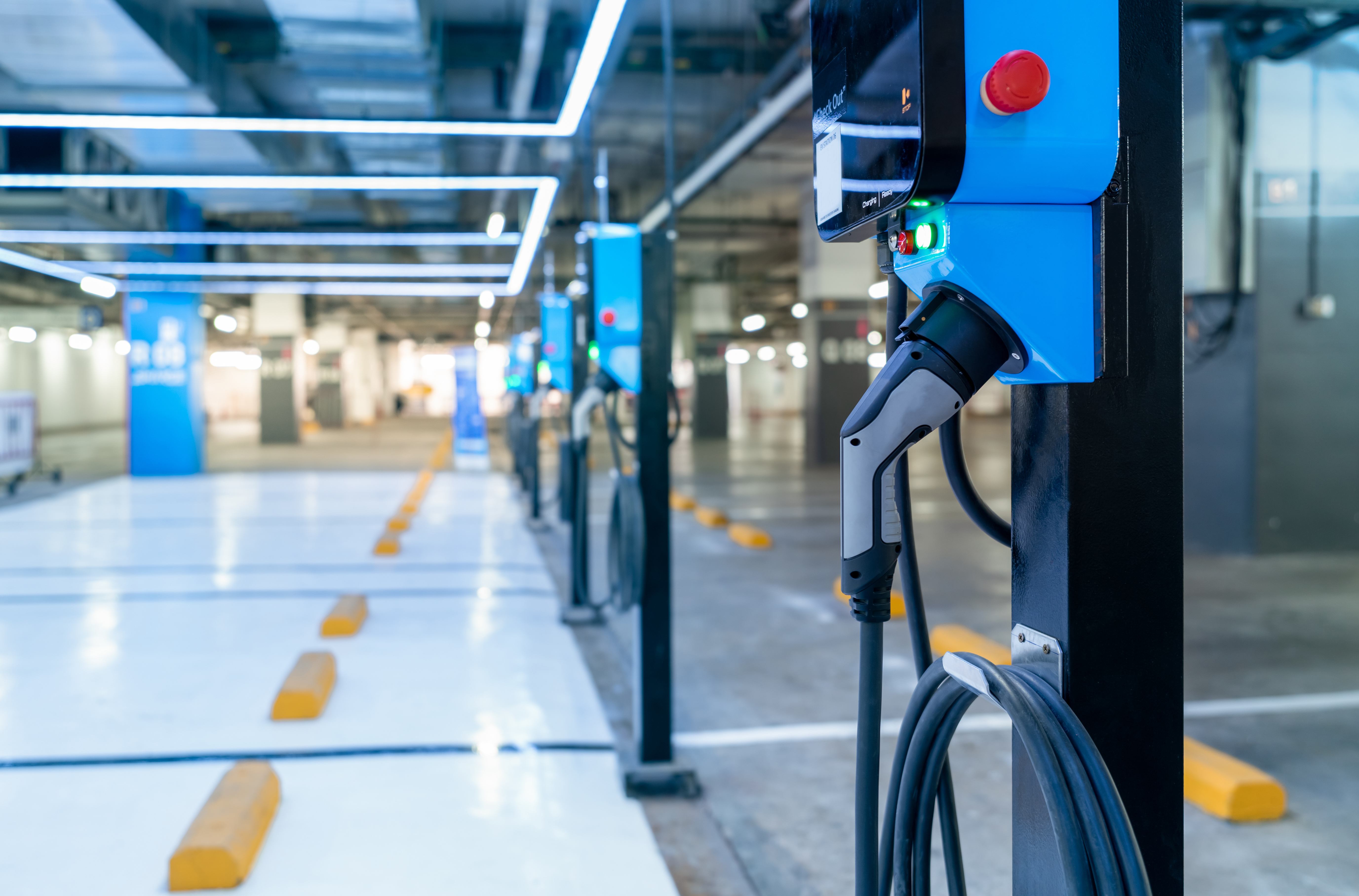
Energy Plug Technologies Corp. (CSE: PLUG) (OTCQB: PLGGF) (FSE: 6GQ) is pleased to announce its second sale in the United States, marking another key milestone in the company's expansion into the growing U.S. energy storage market.
A 209-kilowatt-hour (kWh) Energy Storage System (ESS) will be delivered to a client in the Southeastern United States to power on-site construction operations. By replacing conventional diesel generators, the system will deliver cleaner, quieter, and more efficient power—cutting fuel use, emissions, and operating costs while improving reliability and uptime.
"This latest U.S. deployment reflects the accelerating demand for our clean, high-performance energy solutions," said Paul Dickson, CEO of Energy Plug Technologies. "Clients are recognizing that battery storage offers not only sustainability benefits but also measurable savings and greater operational control."
Key Benefits of Energy Plug's ESS Technology:
Energy Plug continues to expand its footprint across North America as industries transition toward cleaner, more resilient energy systems.
Energy Plug Technologies | https://energyplug.com/
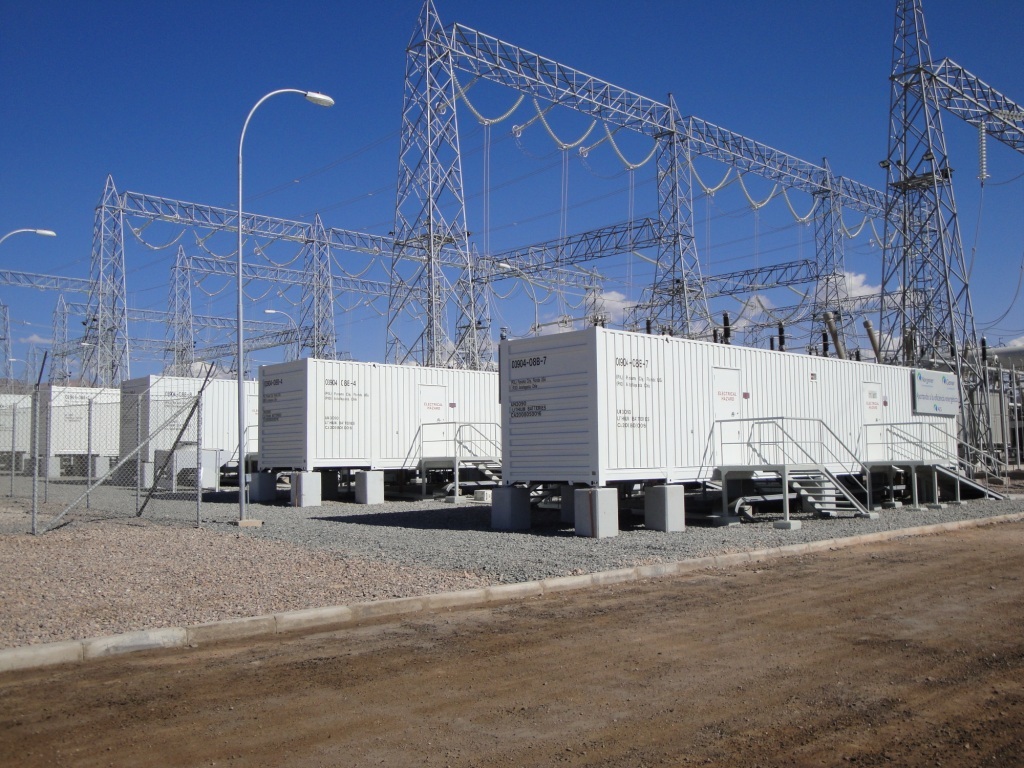
Stryten Energy LLC, a leading U.S.-based energy storage solutions provider, will showcase its energy storage technology at the inaugural Battery Council International (BCI) Flow Batteries North America event. The conference, dedicated exclusively to advancing flow battery innovation and deployment, will take place October 27-29 at the Renaissance Chicago Downtown Hotel.
As the premier Diamond Sponsor, Stryten Energy will spotlight its leadership in domestic manufacturing and the advancement of sustainable energy storage technologies. Stryten Energy CEO and President Mike Judd will deliver the event’s welcome address on Tuesday, October 28, sharing how North America-manufactured solutions are transforming grid reliability and reshaping the future of energy storage. He will also address how now is the right time for the entire industry to deploy utility-scale flow batteries across multiple applications to serve increased energy demand and improve U.S. energy security and independence.
“Stryten Energy provides solutions that strengthen energy resilience,” said Scott Childers, Vice President of Essential Power at Stryten Energy. “We are leading the advancement of domestically manufactured energy storage with a battery-first portfolio designed to optimize power across all energy sources.”
Attendees can meet with the Stryten team to explore real-world applications of Stryten Energy’s next-generation battery energy storage systems (BESS) used in data centers, microgrids, military operations and industrial applications. Stryten’s innovations are playing a key role in securing and modernizing the grid.
Panel Discussion at BCI Flow Batteries North America
On Wednesday, October 29 at 11:35 a.m., Childers will join Nate Kirchhofer, Cofounder & CEO at BioZen Batteries, Inc., John Miller, Materials Science Engineer at Entex, and Russ Weed, President at CleanTech Strategies in a Flow Battery Industry Group member panel. The group will discuss the critical need for advancing flow battery technology as the grid evolves to accommodate renewable energy integration.
Storion Energy, a joint venture between an affiliate of Stryten Energy LLC and Largo Clean Energy Corp., will also present its Vanadium Redox Flow Battery (VRFB) component technology, designed for scalable, long-duration storage needs.
For more information about Stryten Energy’s essential power solutions, visit www.essentialpower.com.
Stryten Energy | www.stryten.com
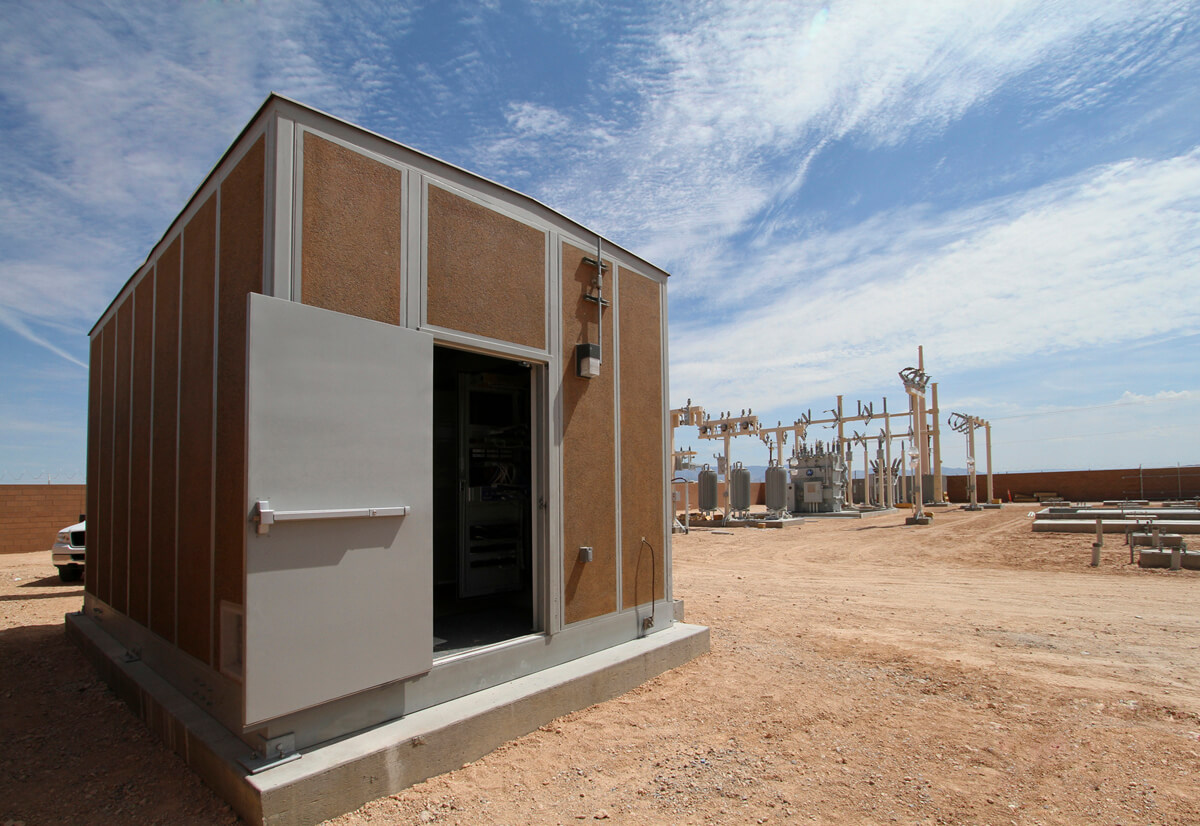
Storion Energy LLC, a U.S.-based supplier of Vanadium Redox Flow Battery (VRFB) components, will showcase its high-quality vanadium electrolyte and stack power assemblies during the inaugural Battery Council International (BCI) Flow Batteries North America event. The conference will take place October 27-29 at the Renaissance Chicago Downtown Hotel and will feature overviews of several commercially successful VRFB installations throughout the United States.
“VRFBs are a critical energy storage technology needed to buffer the extremely volatile nature of loads in the next generation of AI Data Centers,” said Sue Ozdemir, CEO of Storion Energy. “By providing domestically sourced VRFB components, we are enabling flow battery manufacturers and project integrators to accelerate the deployment of the long-duration energy storage to support the expansion of data centers as well as help provide increased resilience and reliability to the U.S. grid system.”
Storion Energy, a joint venture between an affiliate of Stryten Energy LLC and Largo Clean Energy Corp., is removing the barriers to entry for battery manufacturers by enabling them to domestically source price-competitive components for flow batteries, including vanadium electrolyte. Storion combines access to high-quality vanadium supply from the largest producing vanadium mine in the Western Hemisphere with domestic electrolyte production to establish a fully integrated vertical supply chain for utility-scale VRFBs used in Long-Duration Energy Storage (LDES) applications.
Meet with the Storion Energy team to learn how VRFB supports utility-scale LDES to ensure energy resilience and security.
Storion Energy | storion.com

Century Lithium Corp. (TSXV: LCE) (OTCQX: CYDVF) (Frankfurt: C1Z) ("Century Lithium" or "the Company") is pleased to announce that the Company has begun moving its Lithium Extraction Facility ("Demonstration Plant") to the Company's facility at the Tonopah Airport, Nevada. This relocation will consolidate the Company's operations, improve logistical efficiency, reduce costs and strengthen support for ongoing and future activities.
"The relocation of the Demonstration Plant will allow the Company to consolidate support for the development of Angel Island," said Bill Willoughby, President and CEO of Century Lithium. "Thanks to the knowledge and efforts of our team, led by Senior Vice President Todd Fayram, Century's process has undergone various configurations while performing a multitude of tests towards the development of Century Lithium's patent-pending process for chloride leaching and Direct Lithium Extraction (DLE)."
Century Lithium's end-to-end process begins by treating Angel Island claystone under optimized conditions using hydrochloric acid, followed by neutralization using sodium hydroxide, with both the acid and base components sustainably produced on-site through the electrolysis of salt water. Following filtration, the resulting lithium chloride solution is treated by DLE to selectively recover lithium and refined to produce high-purity, battery-grade lithium carbonate suitable for electric vehicle and energy storage applications.
By relocating the Demonstration Plant, Century Lithium will gain more space to conduct research and development on battery materials, including lithium metal and lithium iron phosphate. The new location will also allow the construction of a larger assay and metallurgical laboratory at Tonopah to support Angel Island's current and future laboratory needs.
Century Lithium's 20-acre site at the Tonopah Airport is home to Century Lithium's field office for Angel Island. It was integral for the preparation and handling of the bulk sample material treated in the 3-year-long pilot plant program at Amargosa Valley. Going forward, Century Lithium's Tonopah Airport facility will be used for research and development for Angel Island, project support and administration.
Century Lithium | centurylithium.com
Solar Oct 10, 2025
Solar is safe when it’s maintained — and risky when basics slip. Across sites, the pattern behind many PV fires is consistent: soiling and shading create hot spots; loose or corroded DC joints run hot; wildlife and litter add fuel; and moisture i....

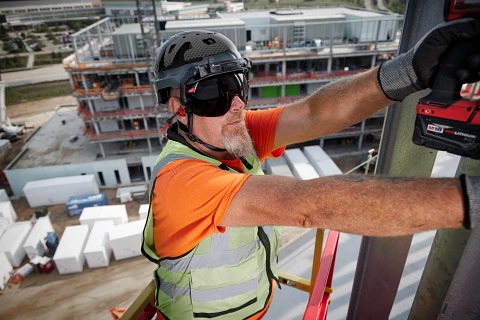
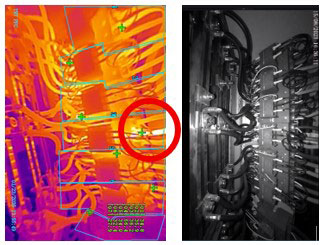
Solar is safe when it’s maintained — and risky when basics slip. Across sites, the pattern behind many PV fires is consistent: soiling and shading create hot spots; loose or corroded DC joints run hot; wildlife and litter add fuel; and moisture i....
As utility-scale hybrid solar and battery energy storage projects become standard across North America, operators are facing increasing complexity. These systems are no longer passive generators, but dynamic assets that must respond in real time to g....
It didn’t start with a robot. It started with a problem. Clean energy is one of the hottest commodities today, and the world is rushing to meet this increasing demand. However, the typical financial barrier isn’t a problem for the industry; it....
Wind power has been a highly successful ....
As wind turbines keep growing taller and....
As energy needs grow more complex and grid instability becomes a regular concern, mobile microgrids are gaining attention as a flexible, lower-emission energy solution. Their emergence is timely. From wildfire-related outages in the West to hurricane....
A next generation of Virtual Power Plants has emerged in 2025, embodying trends which will require more efficient integration with utility grids. These trends span a wide range: VPPs that integrate EV charging and other new resources; building manage....
The confluence of several energy challenges has presented itself within the North American market. Rising electricity demands, grid reliability concerns, affordability and bottlenecks have reached an inflection point. Microgrids are emerging as a sol....
After months of debate in Congress, the One Big Beautiful Bill Act (OBBBA) was finally signed into law. With the goal of restructuring and simplifying federal incentive programs while reducing long-term costs, the OBBBA comes with several updates and....
Helium, once known primarily for its niche industrial uses, has emerged as a strategic political asset amid rising geopolitical tensions and trade uncertainties. Its critical role in next-generation technologies such as semiconductors, space explorat....
The need for reliable, high-quality electricity has never been greater now the grid is highly dependent on getting its supply from multiple sources. Power grid quality monitoring increasingly plays a significant role in ensuring that electricity arri....